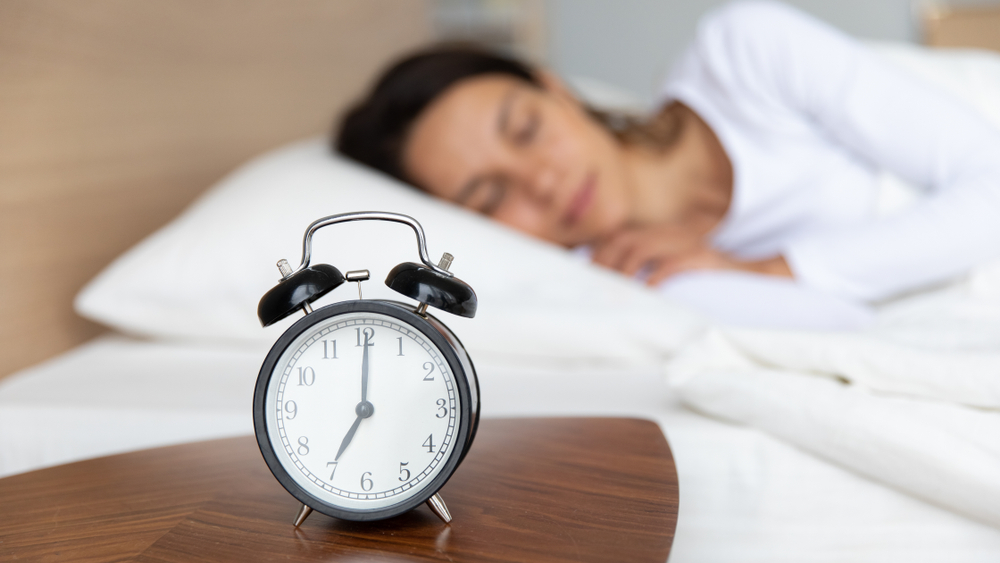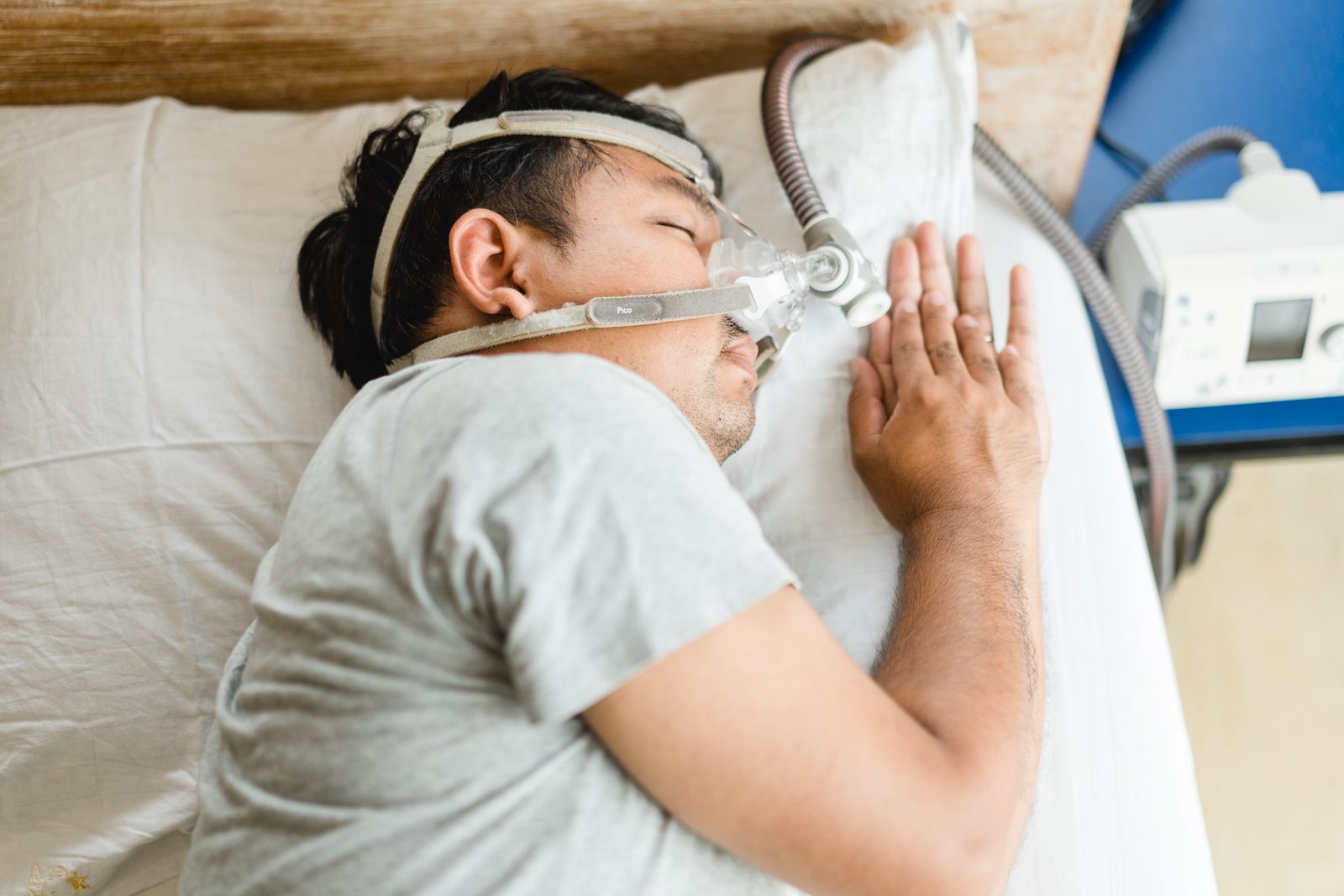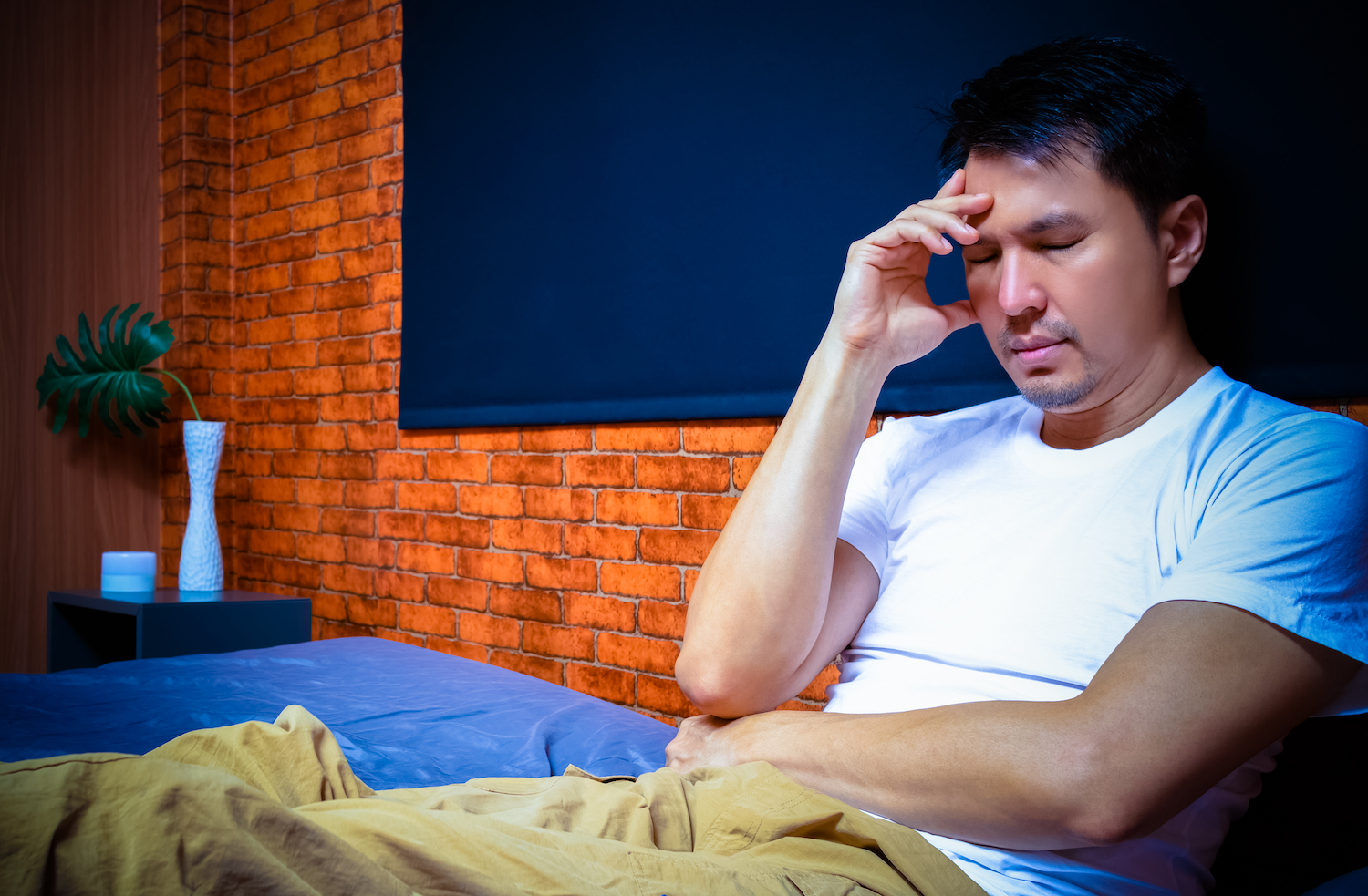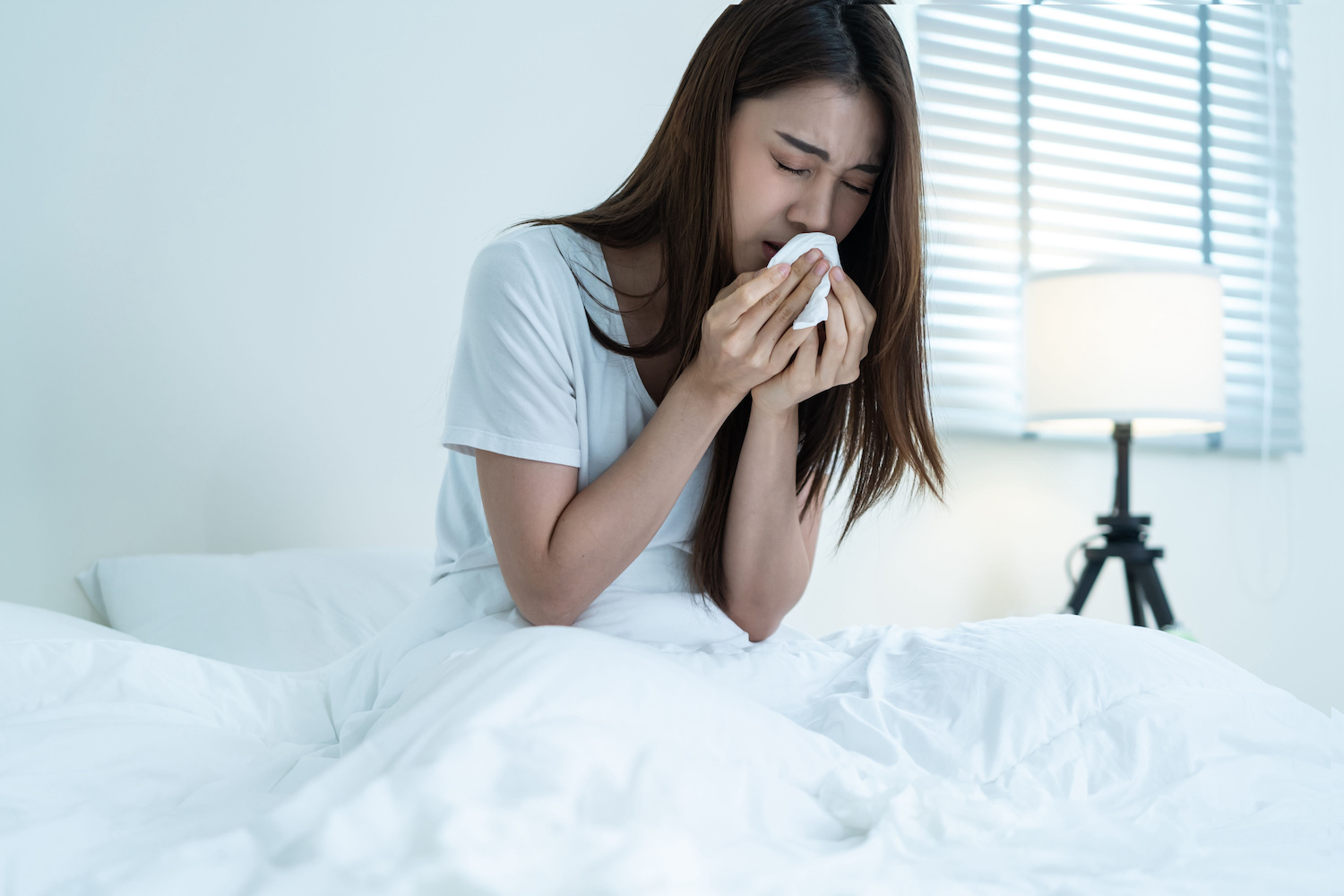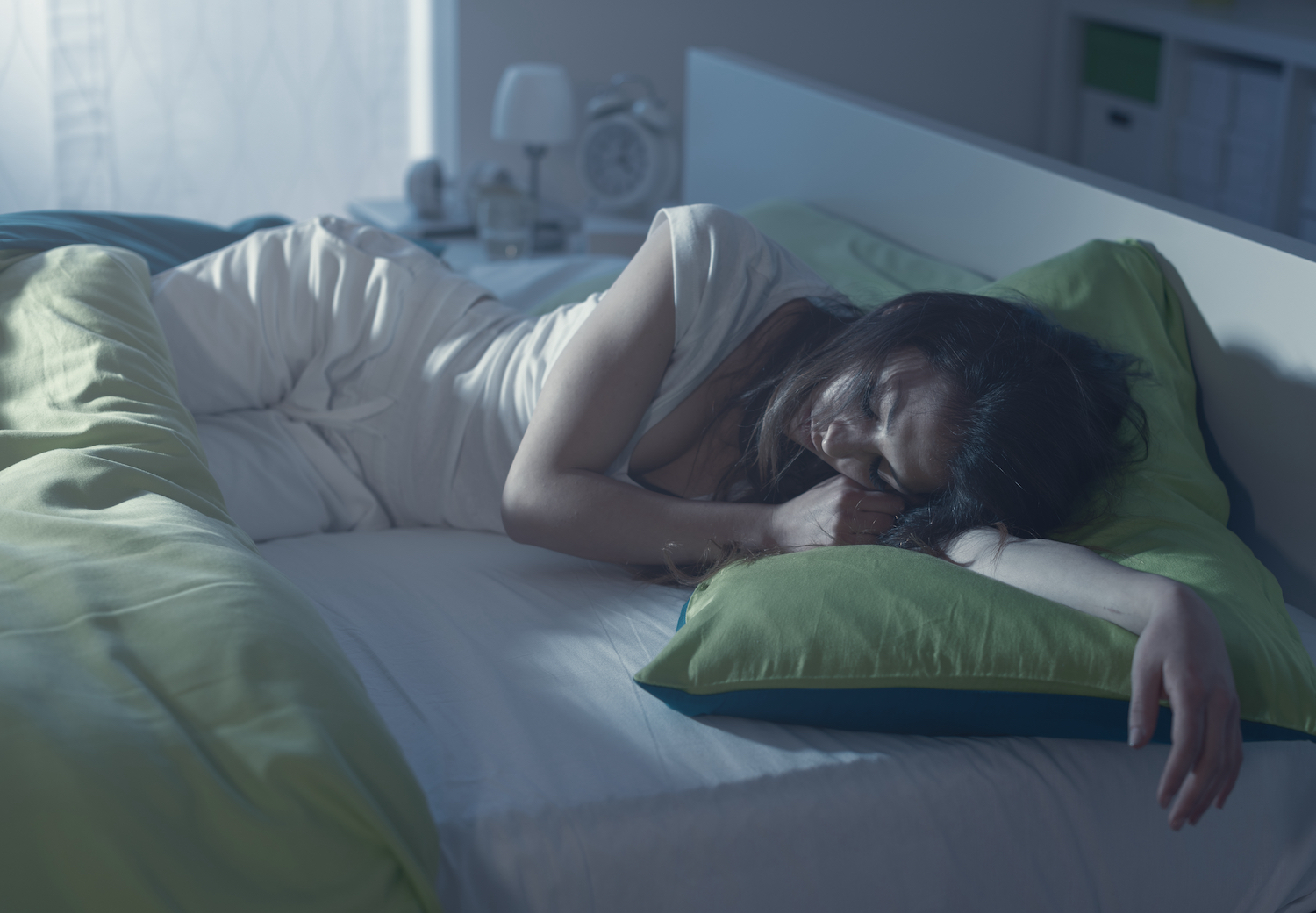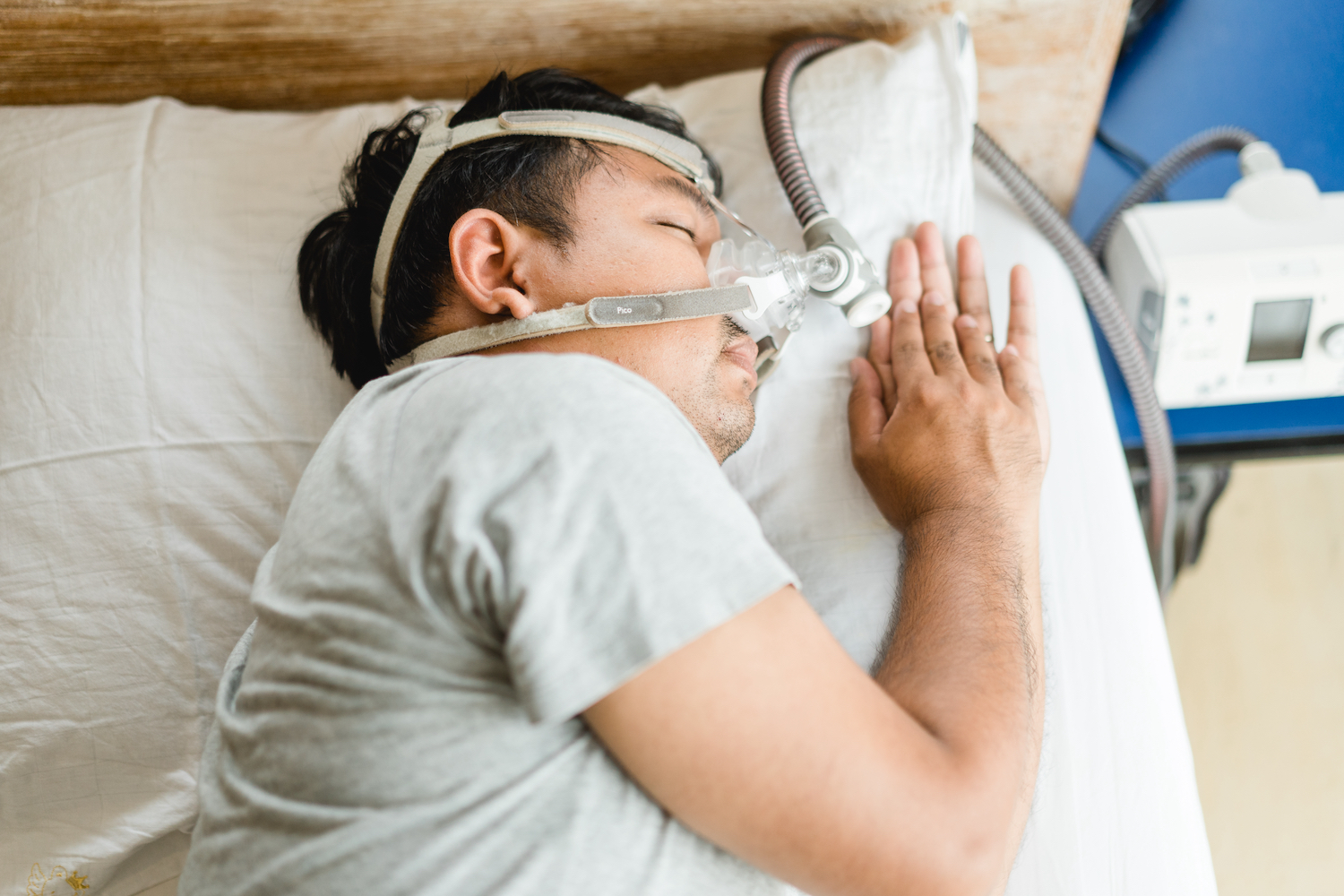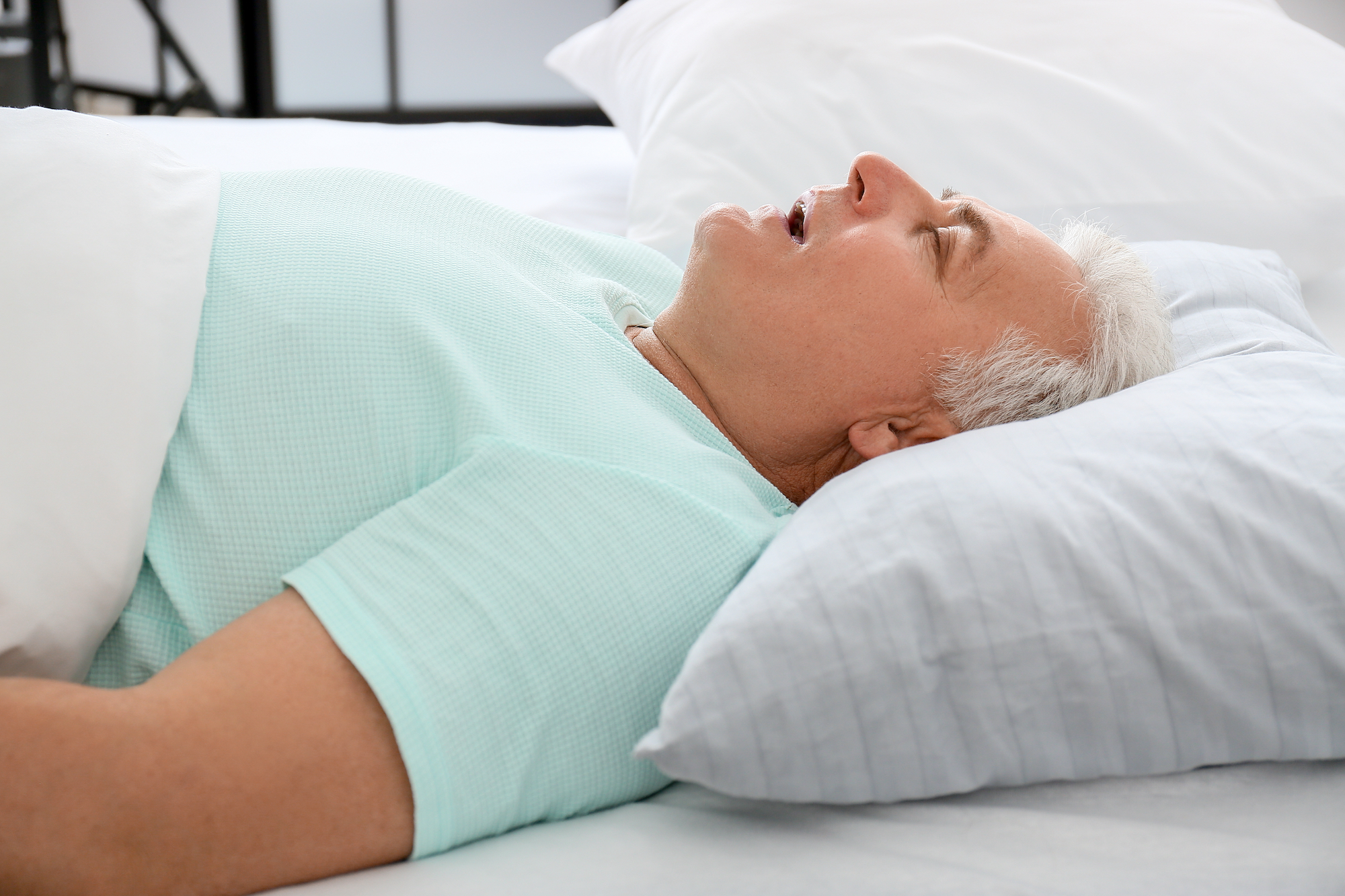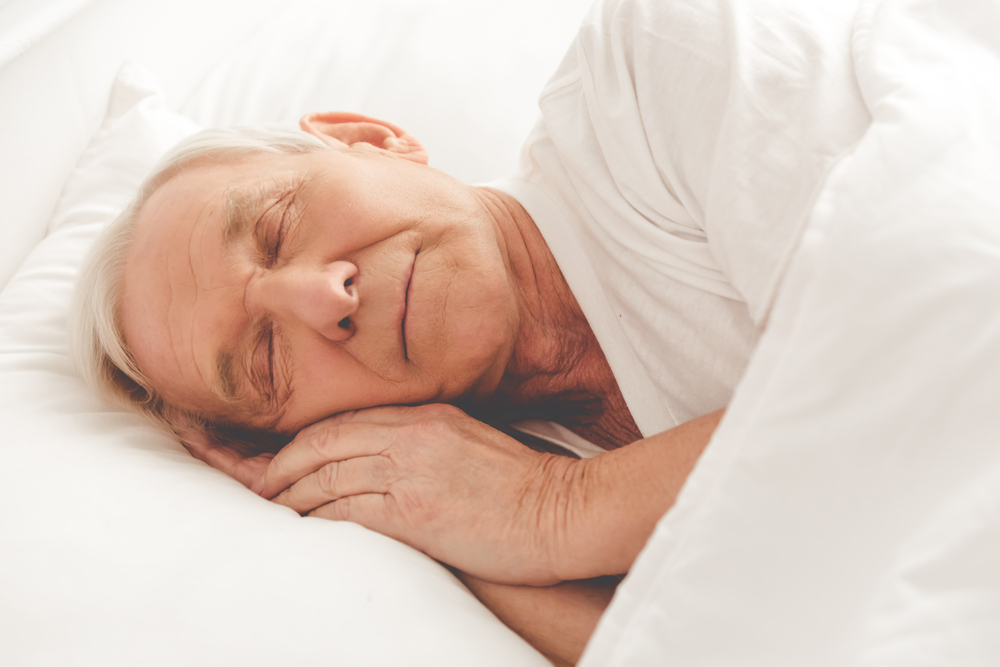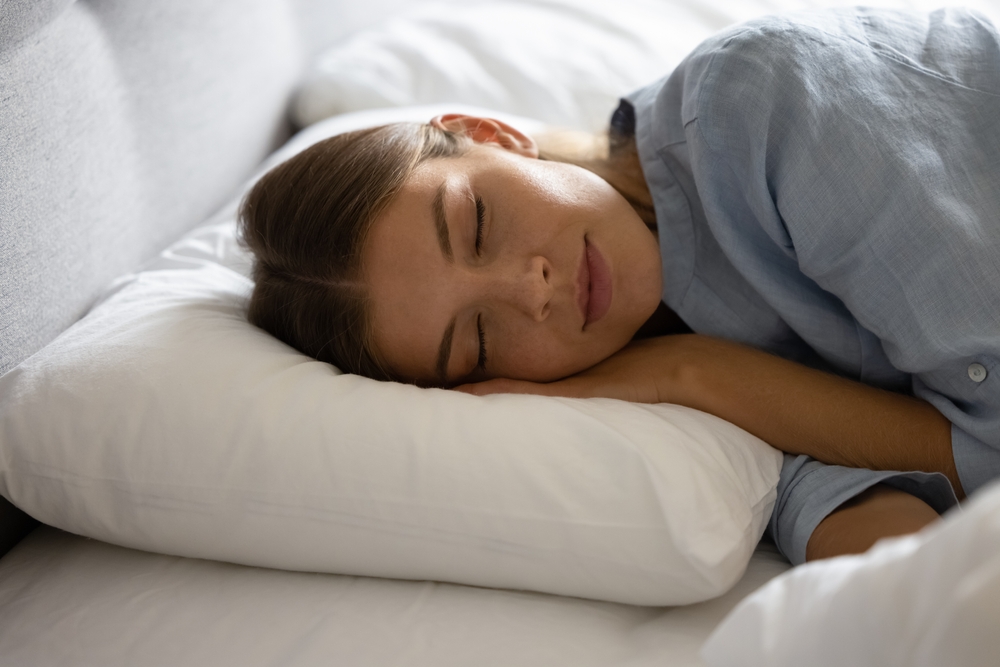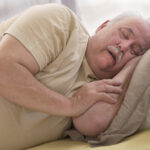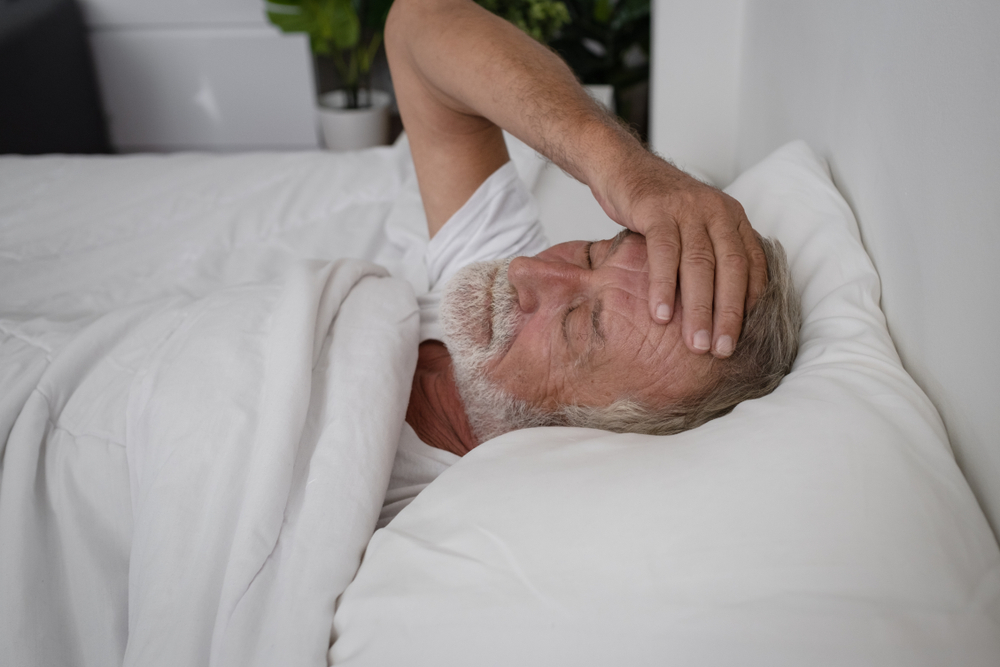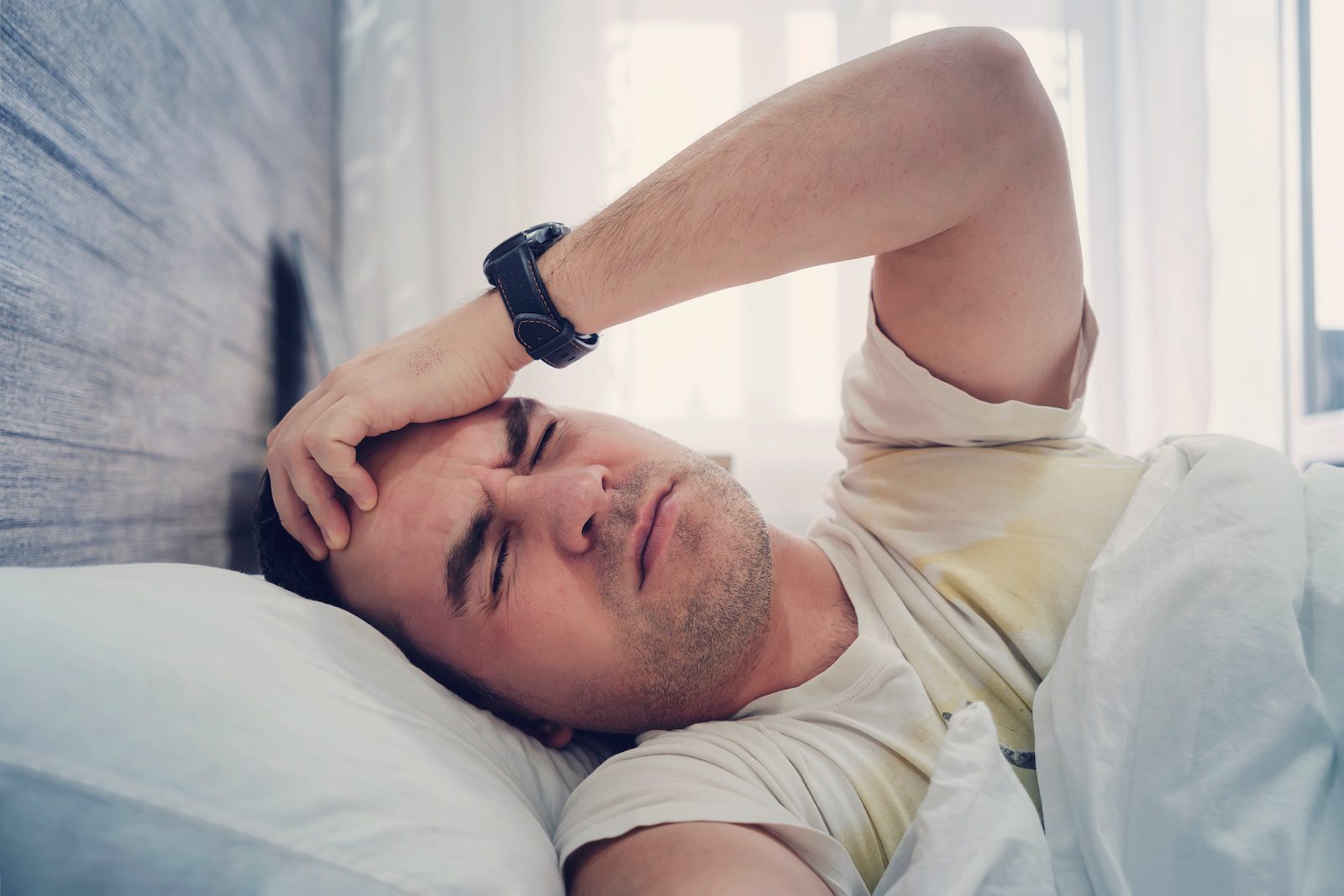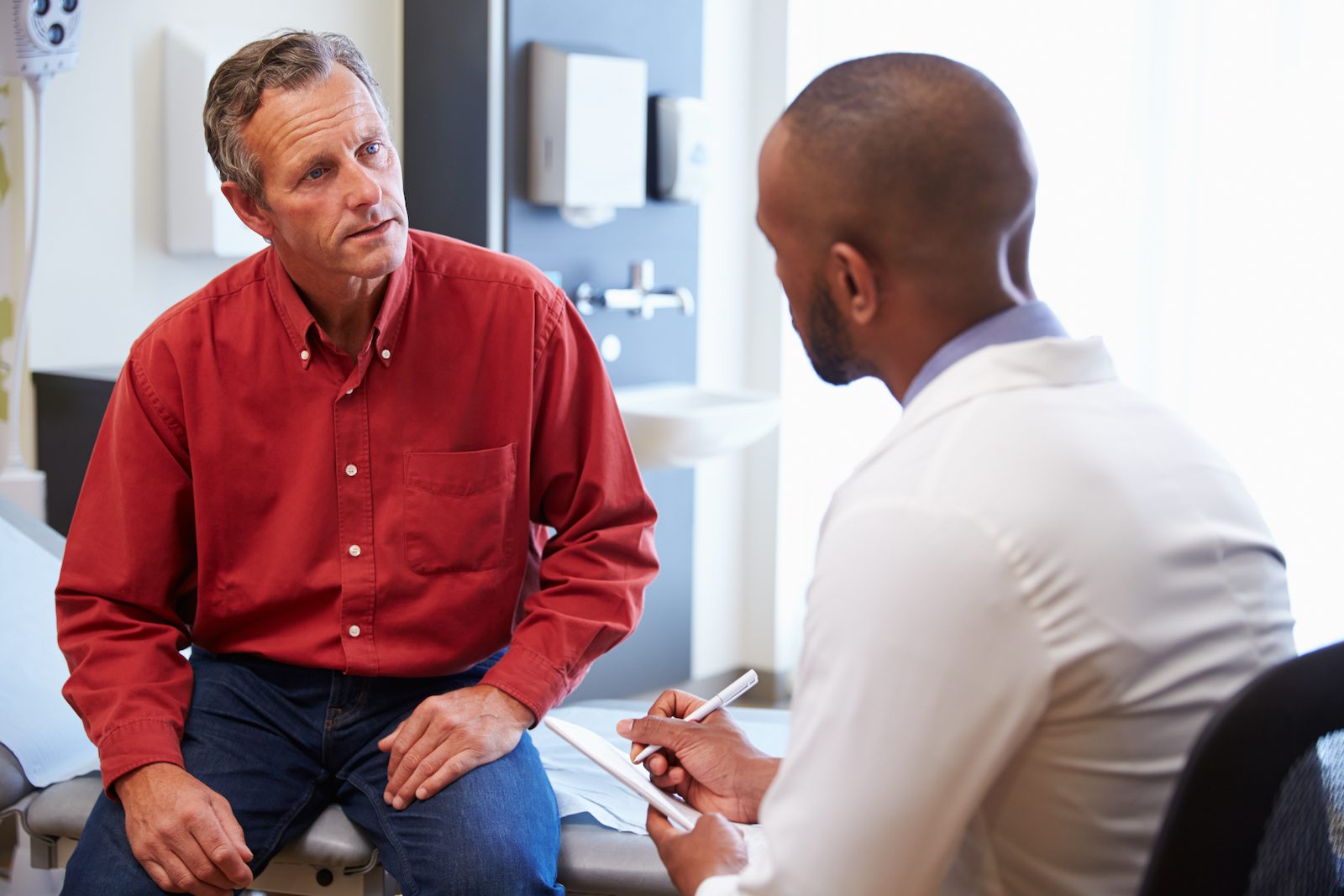Obstructive sleep apnea (OSA) is a disorder in which breathing slows or pauses more than usual during sleep due to a closing airway. Approximately 10 to 30% of people have OSA, which commonly manifests as daytime sleepiness, morning headaches, loud snoring, or gasping for air during sleep.
Teeth grinding, also known as bruxism, can happen during sleep. Evidence suggests that teeth grinding may be linked with OSA in some cases. Bruxism may be a subconscious attempt to help open the airway by repositioning the lower jaw and the tongue.
What Is Bruxism?
Bruxism refers to teeth grinding and happens when you bite down on your teeth by clenching your jaw muscles. Teeth grinding doesn't cause a problem for all people, but in some cases it can interfere with sleep, damage teeth, or hurt the jaw.
Although teeth grinding can happen at any time of day by any age group, it most frequently occurs during sleep and is more common among children than adults. Fifteen to 40% of children and 8 to 10% of adults grind their teeth while asleep.
During sleep-related teeth grinding, the jaw moves in a rhythm, with muscles contracting approximately once per second. The teeth might make a clicking or grating sound, or they might make no noticeable sound.
Symptoms of Teeth Grinding
Identifiable symptoms may develop from the forceful jaw contractions that occur during teeth grinding.
- Morning headaches: Those who grind their teeth during sleep may notice they experience headaches in their temple upon waking in the morning.
- Jaw or neck pain: Because teeth grinding can involve biting down with more strength than what is used in regular chewing, it can also result in jaw or neck pain.
- Jaw clicking: Excessive jaw movement from grinding can cause the disk between the upper and lower jaw to pop in and out of normal position. People who grind their teeth during sleep might notice clicking or popping sounds while moving their jaw during the daytime.
- Teeth damage: Since teeth grinding puts so much pressure on the teeth, it can wear down or damage teeth to the degree that they may require dental restoration. Grinding can also change a person's bite, which may make chewing more difficult.
- Teeth sensitivity: Teeth that have been impacted by nighttime grinding may become more sensitive to hot and cold temperatures as the consistent grinding motions cause gums to recede and expose the root of a tooth.
- Mouth injury: Grinding and clenching teeth during sleep may injure a person's cheeks, tongue, or lips.
The Possible Connection Between Sleep Apnea and Teeth Grinding
Of people with obstructive sleep apnea, 33% to 54% also grind their teeth while asleep, suggesting the two disorders commonly occur together. Although it is unknown how OSA and sleep teeth grinding are related, one theory has to do with sleep arousals.
Teeth grinding is thought to happen during micro-arousals, which are normal, brief awakenings that a person may or may not be aware of. When a micro-arousal occurs, the nervous system becomes more active and can trigger body movements such as tossing and turning or movement of the jaw and teeth.
Obstructive sleep apnea can cause micro-arousals from sleep. With OSA, breathing stops or slows for 10 seconds or more multiple times per hour during sleep. In response, the nervous system may activate, contracting muscles to start breathing again.
Some sleep researchers propose that among people with OSA, those who have more micro-arousals may be more likely to grind their teeth during sleep.
Who’s Most at Risk for Sleep-Related Bruxism?
Sleep experts have identified multiple factors that increase a person's risk of sleep bruxism, or teeth grinding during sleep.
- Sleep behavior disorders: Parasomnias are sleep behavior disorders that involve engaging in unusual activities while falling asleep, sleeping, or waking from sleep. For example, a person with a parasomnia may talk, walk, or wet the bed while asleep.
- Anxiety and stress: Anxiety and stress can impact sleep patterns and are associated with teeth grinding during sleep, but experts aren't certain about how exactly stress and anxiety could cause teeth grinding.
- Obstructive sleep apnea: Some people with OSA experience micro-arousals, or moments in which they briefly awaken from sleep throughout the night. These arousals may contribute to teeth grinding in some people.
- Medications and substances: Certain medications and substances have been linked to teeth grinding, including amphetamines, antipsychotics, certain antidepressants, cocaine, and ecstasy. Adult women with existing psychiatric disorders may face the highest risk of teeth grinding in response to a medication or drug.
- Neurological disorders: Many people with neurological disorders, such as Down syndrome, autism, cerebral palsy, and Alzheimer's disease, grind their teeth during sleep. People with these disorders may also notice themselves grinding their teeth while awake.
- GERD: People with gastroesophageal reflux disease (GERD) experience acid reflux, or stomach acid coming up into the esophagus, causing a burning sensation. Sleep-related teeth grinding is common in people with GERD.
- Family history: Teeth grinding may run in the family. Between 20% and 50% of people who grind their teeth report that at least one family member also grinds their teeth. However, experts haven't yet identified any genes known to cause teeth grinding.
Potential Treatments for Teeth Grinding During Sleep
Sleep-related teeth grinding can be treated in a variety of ways, some of which overlap with OSA treatment options.
PAP Therapy
If you have OSA and also grind your teeth, then treating OSA may actually improve both conditions.
OSA is commonly treated with a positive airway pressure device, such as a continuous positive airway pressure (CPAP) or bilevel positive airway pressure (BiPAP) machine. PAP machines deliver pressurized air into your nose or mouth and nose using a tube and a mask. The air keeps your airway open, preventing mouth and throat tissues from collapsing and blocking airflow.
Because the airway is less likely to be blocked, a person undergoing PAP therapy may experience fewer breathing-related micro-arousals during sleep. Less micro-arousals could mean reduced teeth grinding.
Oral Devices
Wearing a mouthpiece may help protect your teeth from the effects of grinding. Experts commonly recommend two oral devices to lessen the effects of teeth grinding.
- Bite splints: A bite splint is a removable device that fits over some or all of your upper or lower teeth to prevent damage from grinding. If you have OSA, do not wear this type of device, unless it has been prescribed and fabricated by a qualified provider trained in sleep apnea. Since a bite splint wears down over time, a dentist should check it occasionally.
- Mandibular advancement devices (MADs): MADs are custom-made mouthpieces, fitted by a dentist, that position your jaw forward in a way that opens your airway. When doctors recommend an oral device to treat OSA, an MAD is usually chosen. MADs can also protect teeth from the effects of grinding.
Medication Changes
Sleep-related teeth grinding is associated with types of medications, such as certain antidepressants and amphetamines.
Talk with your doctor if you suspect a medication may be the cause of your teeth grinding. If it's a new medication, your doctor may recommend you continue using the medication and wait and see if the teeth grinding goes away after some weeks of use.
If the teeth grinding does not go away on its own, your doctor may recommend a lower dose of your medication or prescribe an additional medication specifically to treat teeth grinding.
Sleep Hygiene Improvements
Since teeth grinding seems to often happen during micro-arousals, practicing healthy sleep habits may help you stay asleep and prevent teeth grinding.
To practice better sleep habits, avoid alcohol or caffeine in the few hours before bedtime. These drugs can disrupt your sleep pattern, delay or prevent you from reaching deep sleep, and cause you to wake up or stay awake at night.
You could also try relaxation or meditation techniques, such as deep breathing, throughout the day and right before bedtime to relax the mind and muscle groups in your body.



